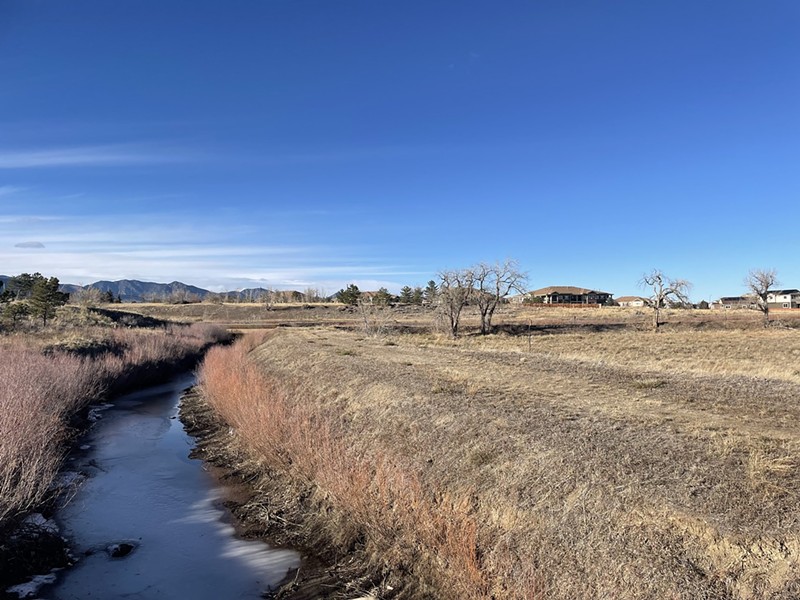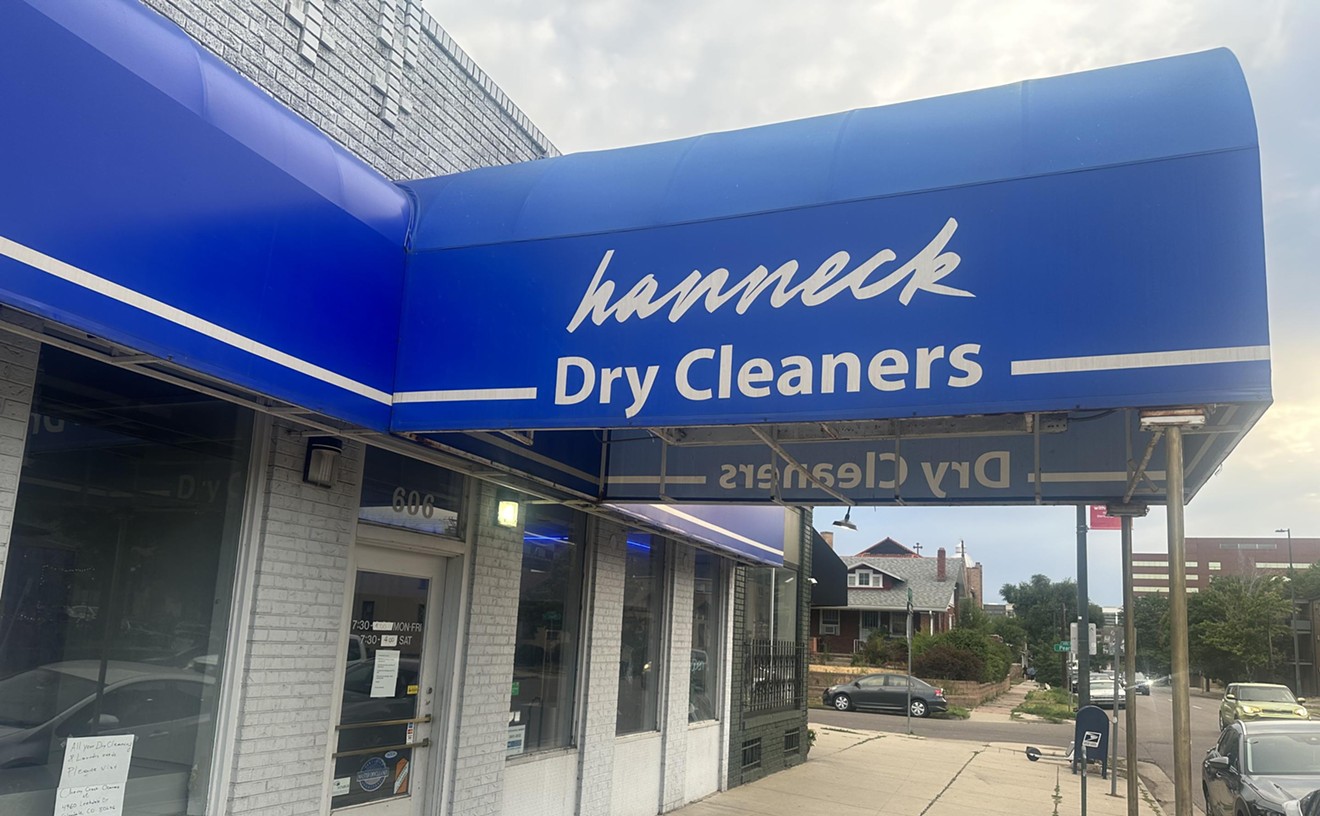Residents across Jefferson County say they have fallen victim to an issue that has long plagued other parts of the state: short-term rentals, or STRs.
Joining Denver and some of Colorado's biggest ski towns — which have created strict rules for STRs in recent years — people from across the mountain county west of the Mile High City are complaining about rotating doors of strangers wandering through their neighborhoods and on their property, loud late-night parties, and behavior that people fear could start wildfires.
Residents say investors have come to Jefferson County in droves to take advantage of the area's beauty and attractiveness for tourists, as well as its lax STR regulations. The locals have banded together to form the Foothills Community Action Group, and are asking Jeffco officials for stricter STR regulations along with stricter enforcement for regulations already in place.
Chris O'Keefe, Jefferson County's director of planning and zoning — which is responsible for the regulation of STRs — says he and his department are fully aware of the issues plaguing the area. While he says the county is actively working to get a handle on the issues being reported, he notes that it's a relatively small governmental body that is ultimately trying to go up against an extremely lucrative industry and uncooperative STR vending giants like Airbnb and VRBO.
According to O'Keefe, Jefferson County does have a licensing requirement for STR operators, but the county's ability to enforce that requirement is extremely limited. The planning and zoning department has a team of six people on its enforcement team, and those six individuals are responsible for all departmental regulation enforcement — not just of STRs — for a county of over half a million people.
O'Keefe estimates that there are "probably seven or eight hundred short-term rentals operating in Jefferson County illegally." However, he explains, because STR vendors have not complied with the county's requests for data regarding the number and location of STRs in the area, that estimate is rough.
"Only 28 short-term rentals have gone through the process and been approved [for a license]," he adds.
Jefferson County operates on a complaint-based system for STR enforcement, but even that struggles to yield results.
Speaking at a community meeting hosted by the Foothills Community Action Group on April 27, O'Keefe told community members that the county can impose a $100 fine on non-compliant STRs, but it must take offenders to court in order to collect the fine. With the problem so large and the county's resources so limited, there is simply no way to enforce that penalty.
Additionally, O'Keefe points out, the volume of STR-related complaints in Jefferson County has grown in recent years. "It's really taken a toll on our enforcement team," he says.
Randy Leonard, one of the leaders of the Foothills Community Action Group, says that many members have reported issues such as disruptive parties/activities at STRs late at night and increased wear and tear on private roads from the traffic the rentals bring into rural neighborhoods. Resurfacing for the roads costs thousands of dollars, he adds, and is the financial responsibility of the neighborhood's residents.
However, the most crucial concern of Jeffco residents has been the increased potential for wildfires breaking out. Locals who spoke to Westword say that STR guests have allegedly been flicking cigarette butts and setting off fireworks in high-risk areas where rental units are located.
According to wildfirerisk.org, Jefferson County has an 88 percent higher risk for wildfire compared to other U.S. counties. Evergreen, specifically, has 99 percent higher risk. As a result, Jefferson County frequently enacts fire restrictions and bans.
County residents fear that short-term renters are not only unaware of the wildfire risks in the area — and therefore do not take the proper precautions — but that they also do not get the wildfire risk phone alerts and red flag warnings that long-term residents receive.
Economic issues from the STR market, which have plagued other touristy mountain towns, have also impacted Jefferson County. Resident Heather Williams, says the lucrative market has made the housing supply limited and expensive. "One of my daughter's teachers is unable to move out of her parents' house because she has nowhere she can either rent or purchase," Williams claims.
Real estate listing sites like Zillow and Redfin put the average/median prices for homes in the county in the neighborhood of $600,000. One Zillow listing in Morrison, which is currently accepting backup offers, is advertised as a "highly successful, luxurious, fully furnished Airbnb/VRBO Vacation Rental." The listing description continues, "This property grossed just under $12,000 in March and is positioned to earn even more during our high summer season." The asking price is $975,000.
O'Keefe says that the Jefferson County Planning and Zoning department is actively "in a process right now to update our regulations." He says the county will be conducting multiple community meetings to gather feedback on the future of STR rules — though dates have not yet been set. He adds that they will be conducting research on STR rules in neighboring municipalities, and they plan to hire third-party contractors to assist in their enforcement of the regulations.
Leonard says that he and the rest of the Foothills Community Action Group will "keep after them" to make sure those updated regulations come through.
In a statement, Airbnb Senior Public Policy Manager Alex April told Westword: “Our priority is to work with lawmakers across the state on rules that simultaneously address community concerns and protect the economic benefits of home sharing for homeowners and local communities that rely on tourism. We strive to be a good local partner and are supportive of the City's efforts to propose reasonable and fair regulations and look forward to collaborating with them.”
VRBO did not respond to a request for comment.
Jefferson County residents can send their short-term rental concerns to [email protected].
[
{
"name": "Air - MediumRectangle - Inline Content - Mobile Display Size",
"component": "12017618",
"insertPoint": "2",
"requiredCountToDisplay": "2",
"watchElement": ".fdn-content-body",
"astAdList": [
{
"adType": "rectangle",
"displayTargets": "mobile"
}
]
},{
"name": "Editor Picks",
"component": "17242653",
"insertPoint": "4",
"requiredCountToDisplay": "1",
"watchElement": ".fdn-content-body",
"astAdList": [
{
"adType": "rectangle",
"displayTargets": "desktop|tablet"
},{
"adType": "rectangle",
"displayTargets": "desktop|tablet|mobile"
}
]
},{
"name": "Inline Links",
"component": "18838239",
"insertPoint": "8th",
"startingPoint": 8,
"requiredCountToDisplay": "7",
"maxInsertions": 25
},{
"name": "Air - MediumRectangle - Combo - Inline Content",
"component": "17261320",
"insertPoint": "8th",
"startingPoint": 8,
"requiredCountToDisplay": "7",
"maxInsertions": 25,
"watchElement": ".fdn-content-body",
"astAdList": [
{
"adType": "rectangle",
"displayTargets": "desktop|tablet"
},{
"adType": "rectangle",
"displayTargets": "desktop|tablet|mobile"
}
]
},{
"name": "Inline Links",
"component": "18838239",
"insertPoint": "8th",
"startingPoint": 12,
"requiredCountToDisplay": "11",
"maxInsertions": 25
},{
"name": "Air - Leaderboard Tower - Combo - Inline Content",
"component": "17261321",
"insertPoint": "8th",
"startingPoint": 12,
"requiredCountToDisplay": "11",
"maxInsertions": 25,
"watchElement": ".fdn-content-body",
"astAdList": [
{
"adType": "leaderboardInlineContent",
"displayTargets": "desktop|tablet"
},{
"adType": "tower",
"displayTargets": "mobile"
}
]
}
]












